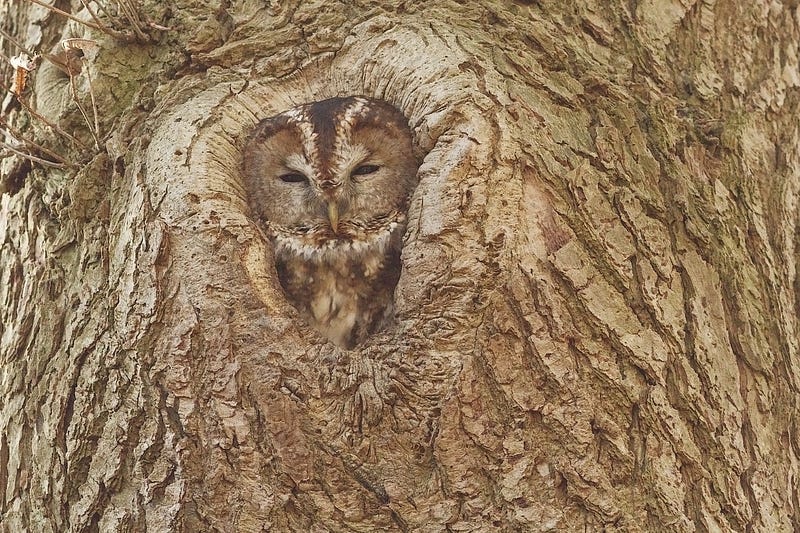Exploring Delusions: Understanding Reality Through Philosophy
Written on
Chapter 1: The Nature of Reality
What constitutes reality and how do we determine it?
For many, the answer seems straightforward: our senses provide us with all the information necessary to navigate our world. Yet, there are instances when our perceptions mislead us—think of mirages, camouflage, magic tricks, or online scams. We can easily be deceived.
At times, we deceive ourselves because accepting reality can be daunting. It’s often simpler to cling to a comforting perspective than to confront the harsh truths of existence. This notion is echoed by psychiatrist Sigmund Freud, who deemed all religious beliefs as delusions stemming from our desires for an ideal world rather than accepting the actual one. He argued:
> "They are illusions, fulfillments of the oldest, strongest and most urgent wishes of mankind. The secret of their strength lies in the strength of those wishes."
But how can we discern what is truly real?
Truth of Another Kind
Many thinkers, both historical and contemporary, have rejected religious belief in favor of rational thought. Rationalists assert that logical reasoning is our pathway to understanding the world. The German philosopher G. W. F. Hegel, in the 19th century, sought to bridge the gap between philosophy and science. However, this endeavor proved challenging.
Hegel recognized that while the absolute reality of the universe exists, our comprehension of it is limited. Nonetheless, he maintained that reason is our best approach. In his seminal work, The Phenomenology of Mind, he stated:
> "Knowledge in general, though it may possibly be incapable of grasping the Absolute, can still be capable of truth of another kind."
This raises a question: How many forms of truth are there? Is there a unique truth for every individual claiming it? How does this "truth of another kind" differ from other delusions?
The Dilemma of Absolute Truth
Hegel’s rationalism is complicated by the concept of the "Absolute." This term causes confusion in both philosophical and religious discussions. What we perceive as true must be unequivocally true. Unlike a game of horseshoes, where proximity counts, truth is binary—it is either true or false. This is the foundation of scientific reasoning.
Sadly, the absolute truth about the universe remains elusive. As mere humans, we do not possess all-encompassing knowledge. Even with the most rigorous scientific information available, we can only navigate through life, constructing meaning and purpose as we progress.
While facts can guide us, we will never have complete information—now or in the future.
The science writer Lewis Thomas offered a more candid assessment than Hegel regarding our understanding. In the latter part of his book, The Medusa and the Snail, he wrote:
> "We do not know enough about ourselves. We are ignorant about how we work, about where we fit in, and most of all about the enormous, imponderable system of life in which we are embedded as working parts. We do not really understand nature, at all. We have come a long way indeed, but just enough to become conscious of our ignorance."
I share this perspective, as do most naturalists; the essence of existence is indeed beyond our full understanding. The absolute reality of the universe remains unfathomable.
The Concept of the Boundless
Long before Plato and Aristotle, the Greek thinker Anaximander introduced the notion of the Boundless. This concept represents the original principle from which the cosmos and everything within it originates. In the solitary fragment of his writings, cited in Milton Munitz’s Cosmic Understanding, Anaximander remarked:
> "It is neither water nor any other of the so-called elements, but some different, boundless nature, from which all the heavens arise and the kosmoi within them."
When I reflect on this idea, it often overwhelms me.
In simpler terms, the Boundless signifies the infinite. Everything else emerges from this source. Yet, without a deeper understanding of this boundless origin, what can we truly assert about ultimate reality? All we can offer is an approximation—a truth of another kind, which might be yet another illusion.
The Purpose of Existence
What is the ultimate purpose behind it all? This question drives our exploration of reality. To find meaning in life is essential for making sense of our universe, yet it is precisely this understanding that remains beyond our grasp.
In his work The Buried Temple, the essayist Maurice Maeterlinck reflected:
> "We appear for an instant in limitless space, our one appreciable mission the propagation of a species that itself has no appreciable mission in the scheme of a universe whose extent and duration baffle the most daring, powerful brain."
This profound statement aligns with insights from evolutionary biology and our expanded understanding of the universe since Maeterlinck's time. Nature embodies limitless, boundless qualities, and therein lies the limit of our knowledge and comprehension.
Knowing and Not Knowing
Many believe they possess a solid understanding of reality. This belief is often rooted in ancient sacred texts, scientific reasoning, or a simple trust in their senses. However, is this really sufficient?
Ultimately, we all subscribe to some version of "truth of another kind." Those who dwell on the concept of the Absolute often find themselves exasperating, as they insist we lack real knowledge of what is absolutely true about the universe—what reality truly is.
What these philosophers fail to realize is that many prefer not to confront the uncomfortable truth of our ignorance. Most individuals find solace in their own comfortable perspectives. Acknowledging our limited understanding can be unsettling. It’s far easier to believe we have a decent grasp on what is real and leave it at that.
The Philosophy Hub
Your connection to all that matters

Chapter 2: Insights from Modern Philosophy
This video explores the concept of delusion in everyday life, examining how people perceive reality and the psychosis that can stem from it.
A deep dive into the reasons behind delusions and why individuals may believe in almost anything, shedding light on the psychology of belief.